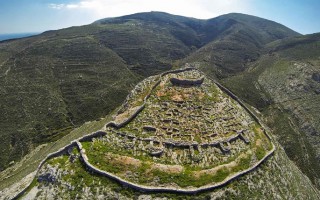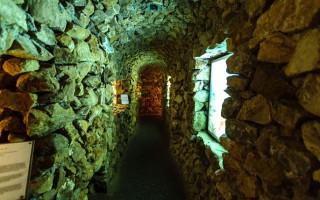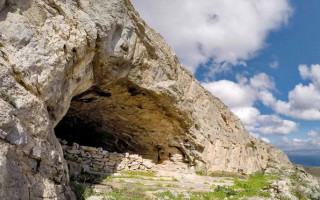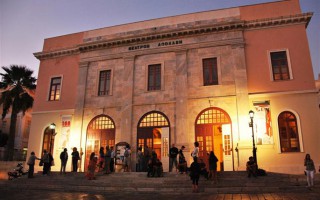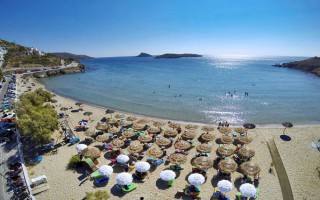 The living museum of Greek dance, since 1953.
The living museum of Greek dance, since 1953.
A public-benefit institution subsidized by the Ministry of Culture and the National Tourism Organization under the auspices of the Municipality of Athens.
– Daily performances in the its 800-seat garden theatre, located on Philopappou Hill, opposite the Acropolis
– A company of 75 dancers, musicians and folk singers
– A collection of over 2,000 village-made costumes, with jewels and other works of folk art worn on stage.
– School providing courses, lectures and workshops on Greek dance, folk embroidery and traditional culture.
– Programs for elementary schools.
– Field research programs in Dance Ethnography, Dance History, or Sociology.
– Study group, courses and workshops on Ancient Greek dance.
– Archives of dance books, articles, field recordings, photographs, videos and films.
– Publications: over 40 LP records, 15 CDs, 15 cassettes, 7 videocassettes, 30 books on dance in Greek, English and other languages, 8 CD-ROMs, 5 DVDs.
– Costume copies and accessories made for folk dance ensembles.
– Organizer of the annual events: World Congress on Dance Research, Anapali Festival, Emmelia Festival.
– Operation of the Dance Pandect portal: www.dance-pandect.gr
– Close cooperation with the International Dance Council CID, the UNESCO official summit organization for all forms of dance in all countries of the world: www.cid-portal.org
House of the Dance, Scholiou 8, Plaka, GR-10558 Athens
Tel. (30) 210 324 4395, 210 324 6188, 210 921 2866, 210 921 4650 ; fax (30) 210 324 6921
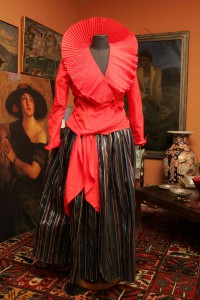 “The Cybeli Institute is a Cultural Institution that explores the theatrical history and the historical fortunes of Hellenism, it highlights concurrent processes in the European and international landscape, creates cultural synergies and promotes the cultural decentralization focusing on the Aegean, having as starting point the adventure of a large family which marked the theater, the politics and the arts of the Greek 20th century.
“The Cybeli Institute is a Cultural Institution that explores the theatrical history and the historical fortunes of Hellenism, it highlights concurrent processes in the European and international landscape, creates cultural synergies and promotes the cultural decentralization focusing on the Aegean, having as starting point the adventure of a large family which marked the theater, the politics and the arts of the Greek 20th century.
Its purpose is the preservation, research, utilization and promotion of all historical material about the Greek and European theatre of the 20th century, through the life and work of the leading lady Cybeli and her family.”
Cybeli web site: www.kyveli.eu
Source: www.syrosisland.gr
Established in 1900, the National Gallery moved frequently before settling in its permanent home on Vasilos Konstantinou and Vasilissis Sofias Streets.
 Until 1939, the gallery was located at the University of Athens. At the start of World War II, the collection was moved to the basement of the Archaeological Museum for preservation.
Until 1939, the gallery was located at the University of Athens. At the start of World War II, the collection was moved to the basement of the Archaeological Museum for preservation.
The gallery’s collections have expanded continuously, thanks to donations from private collectors such as Alexander Soutsos.
Much of the museum’s sculpture collection was moved to the National Glyptotheque located in Alsos Stratou in Goudi.
National Gallery web site: Source: www.athensattica.gr
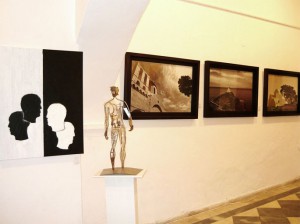 Named in honour of Greek actress and politician Melina Merkouri, the Art and Concert Hall of Hydra is located on the port’s promenade, just west of the statue of Andreas Miaoulis.
Named in honour of Greek actress and politician Melina Merkouri, the Art and Concert Hall of Hydra is located on the port’s promenade, just west of the statue of Andreas Miaoulis.
Housed in the Lazaros Koudouriotis residence, its lovely arcade and exquisite marble floors create a stunning first impression, surpassed only by the distinguished exhibitions, concerts and cultural events hosted here.
 Exhibiting a variety of works by prominent artists each year, the Hall confirms Hydra’s reputation as the island of culture and artists.
Exhibiting a variety of works by prominent artists each year, the Hall confirms Hydra’s reputation as the island of culture and artists.
Source: www.athensattica.gr



